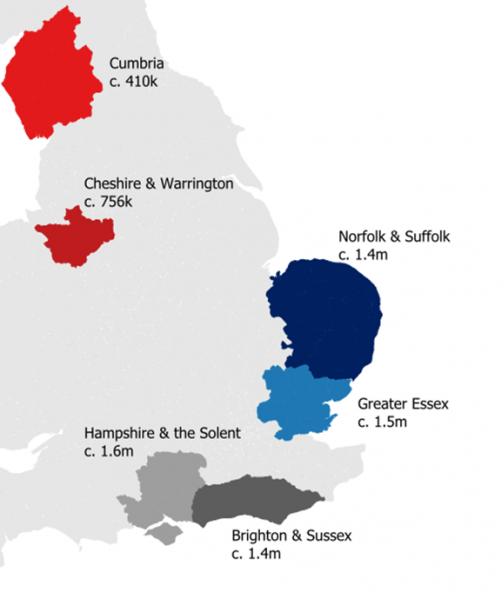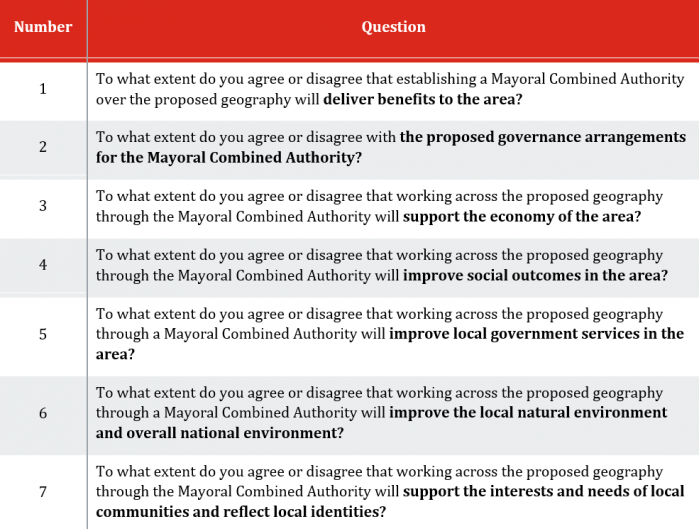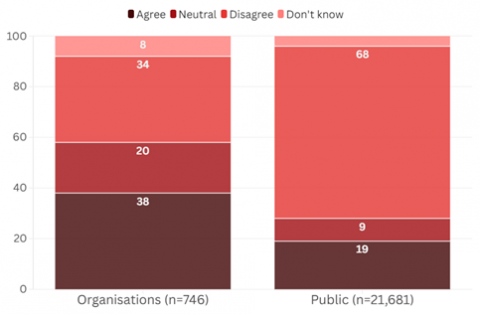
Deepening and widening devolution across England
Devolution in an English context refers to the transfer of powers and funding from central government to local bodies, allowing more locally tailored decision-making. In 2025, the government launched the Devolution Priority Programme, identifying new areas to become Mayoral Strategic Authorities. These would receive broader powers and, crucially, access to Integrated Financial Settlements; a single funding pot designed to give areas greater autonomy and flexibility.
While devolution in England can be traced back as early as 1998,[1] there has been a general movement towards local devolution across the country, particularly from 2010 onwards. Greater Manchester and the West Midlands have been at the forefront of this, as the first Combined Authorities to gain ‘deeper devolution’ through a single financial settlement from central government.
The government's rationale for promoting devolution across England is based on the belief that "too many decisions affecting too many people are made by too few" (English Devolution White Paper, 2025). An over-centralisation of power is seen as one underlying driver in what the government’s devolution White Paper acknowledges as the UK’s higher regional inequality, slower wage growth, and declining living standards, when compared to other developed countries. The paper suggests that this stems from the fact that decisions made in Westminster may not reflect local needs and priorities.
Six regions in England expressed interest in establishing new Mayoral Strategic Authorities in February 2025: Brighton and Sussex; Cheshire and Warrington; Cumbria; Greater Essex; Hampshire & the Solent; and Norfolk and Suffolk. Each region is fundamentally distinct in its economic structure, population density, and cultural identity.
Figure 1: The six regions and their populations aged 16 and over

Consultation as part of the devolution process
Earlier this summer, the Ministry of Housing, Communities & Local Government (MHCLG) released the results of public consultations, undertaken as part of the devolution process in the six areas. These sought to “engage and seek responses from a diverse range of “interested parties”; covering individual members of the public, as well as organisations (businesses, councils, education providers, charities etc.). Responses could be submitted through an online form, via email, or by post. The total number of responses across all regions was 22,445.
The consultations used seven questions, applied consistently across regions, as outlined in Table 1. These covered views relating to the overall benefits of devolution, proposed governance arrangements, economic benefits, social outcomes, local services, environmental benefits, and local community/identity. We have examined the results to draw out some interesting perspectives, both in aggregate, and at the individual area level.
Table 1: The seven questions

Caveats and other considerations
While the consultation data offer valuable insights, a couple of caveats should be acknowledged. First, response bias is a concern, as the characteristics of respondents may not fully reflect the wider population. As much as economic development consultants are interested in devolution, it’s not typically top of the agenda for most people. Second, the phrasing of questions, particularly those relating to whether devolution “over the proposed geography” would deliver benefits, may have influenced responses. In some cases, respondents may support devolution in principle, but disagree with the geographic boundaries proposed.
Key Perspective 1 – Almost two thirds of individual respondents disagree with the view that devolution will deliver benefits to their area
Figure 2 shows the percentage score breakdowns across question one, which asks whether respondents agree that devolution will ‘bring benefits to the area’. The figure is an aggregate of results across all six area responses.[2] The majority of responses from members of the public disagreed with this, whilst just over half of organisations agreed. This opposition amongst the public and absence of widespread enthusiasm from organisations is interesting, as it lacks consistency with the government thinking in relation to the benefits of devolution.
Figure 3: To what extent do you agree or disagree that establishing a Mayoral Combined Authority over the proposed geography will deliver benefits to the area?

Key Perspective 2 – Over two thirds of individual respondents disagree that devolution will support the interests of local communities
The aim of devolution is to enable government to reflect the needs of local people and communities. However, consultation responses suggest this is not seen as a likely outcome.
Figure 4: To what extent do you agree or disagree that working across the proposed geography through the Mayoral Combined Authority will support the interests and needs of local communities and reflect local identities?

Public disagreement is slightly higher in relation to supporting local needs and representing communities than for ‘benefits’ overall. However, organisations were notably more negative. While 55% of organisations believe devolution will deliver ‘benefits’ to the area, only 38% believe devolution will support local needs. Looking within the organisational category, parish and town council responses are notably pessimistic. Across all six places, there were 124 respondents from either a parish or town council, and only 14% agreed with this question; this is even more pessimistic than the response from members of the public.
Key Perspective 3 – While optimism regarding devolution remains low, Northern regions appear comparatively more positive
Organisations and members of the public in the two areas in the North of England, namely Cumbria and Cheshire & Warrington, were comparatively less pessimistic about devolution. Figure 3 shows the breakdown of agreement percentages by question and region. With the exception of Hampshire & the Solent, the data illustrates a correlation between the ‘northerness’ of a region and higher levels of agreement across all seven consultation questions. For Cumbria and Cheshire & Warrington, their level of agreement with devolution benefits is higher across organisations, and to a lesser extent, the public. While total public agreement is not much higher in aggregate, the northern regions display consistently higher agreement across every question. However, branding these regions as ‘optimistic’ would feel overstated, given that the majority of people do not agree that devolution will deliver benefits to their area.
Figure 3: Breakdown of agreement % by question and region

Conclusion
The general findings illustrate the challenge faced by government in securing local buy-in for devolution, at least in these six places. Despite this, devolution in these places is still likely to go ahead (as MHCLG reinforces in its responses to the consultation findings). We suggest three key considerations for policymakers:
- More attention should be paid to articulating the value of devolution in accessible language to local people, particularly in relation to the economic benefits it can generate.
- Similarly, ensuring buy-in from locally elected representatives will also be important, given that the ultimate success of devolution will be contingent on a ‘wider system’ of collaboration between newly instated mayors and legacy government bodies at the local level.
- Alignment between administrative and ‘real’ geographical boundaries should be considered from the outset to ensure the new Mayoral Strategic Authorities feel cohesive and representative.
If you’d like to learn more about devolution, explore our previous evaluation work in this policy area, or discuss how it might affect your organisation, please contact Graham Thom gthom@sqw.co.uk for further information and support.
If you’d like to get in touch to discuss this blog and the data sources within it, please contact me at gmulliner@sqw.com.